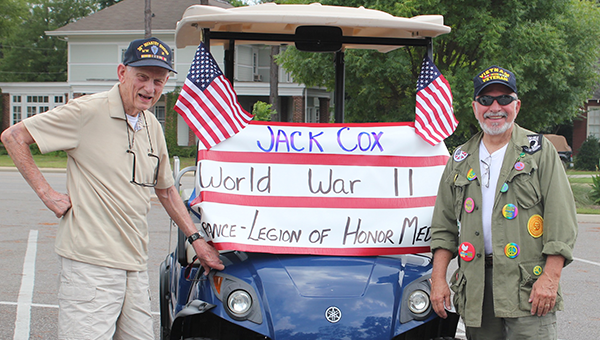Series reminds us of all that changed in ‘70s
Published 12:00 am Saturday, June 13, 2015
This week, CNN has been focusing on The Seventies – that crazy decade of change. A war ended; a president resigned; people wore strange clothes; Elvis died.
I was in grammar school, but I keenly remember television being interrupted by Watergate hearings; the day Nixon’s resignation was announced; and the day Elvis died. My mother and her sisters were devastated.
Television changed in the 1970s, seeking out controversy rather than avoiding it.
The same CBS executives who fired variety show hosts the Smothers brothers at the end of the ’60s for taking on issues like the Vietnam war, shifted course. At the start of the ‘70s, they gave us “The Mary Tyler Moore Show,” “All in the Family,” and “M*A*S*H.”
with some edgy shows challenging conventional thinking The Seventies series got me thinking about some of the 1970s series I used to watch, some of which CNN hailed as significant.
“All in the Family” was one of those that addressed social issues. Archie Bunker was, undeniably, a bigot. But the writers used his character to gently open the minds of many Americans, challenging their thinking. This sit-com’s spinoffs included “Maude,” “Good Times” and “The Jeffersons,” the first television show which cast African Americans as a success story, rather than in a subservient role or a struggle for survival.
“The Mary Tyler Moore Show” was among my favorites as a young girl, and one that challenged stereotypes for women, even addressing workplace inequities women faced, like lower pay for better work.
“Bob Newhart” taught me about psychiatry, a field we didn’t hear much about here in the Deep South. MASH helped shape my thinking – question everything. I was an adult before I realized that this series on the Korean War was really a satire on Vietnam. Who knew?
The Seventies, I learned this week on CNN, also spawned the mini-series. ABC’s “Rich Man, Poor Man” was an early one; “Roots” in 1977 was another. In “Roots,” author Alex Haley traced his family tree back — from an African youth abducted and sold into slavery in the United States, to a southern plantation owner.
Studio executives were, not surprisingly, scared of the mini-series, and opted to air it in the space of a week, which was a totally new concept. If it bombed, they decided, at least it would be over quickly. Instead, the finale drew 51 percent of all U.S. television households.
Many of now opt for consuming a series in the manner of “Roots” – waiting until it airs on Amazon or Netflix, and then watching it in marathon settings.
Back in those days, we had NBC, CBS, ABC and PBS providing us entertainment. Today, there are countless choices, but much less that holds my attention. As we often heard Edith Bunker often sing, “Those were the days.”



